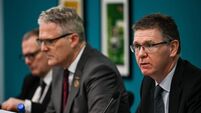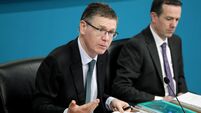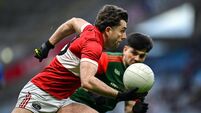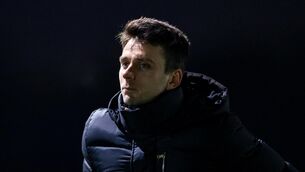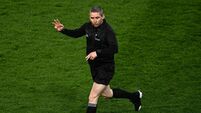GAA demand for astro grows but not for big matches
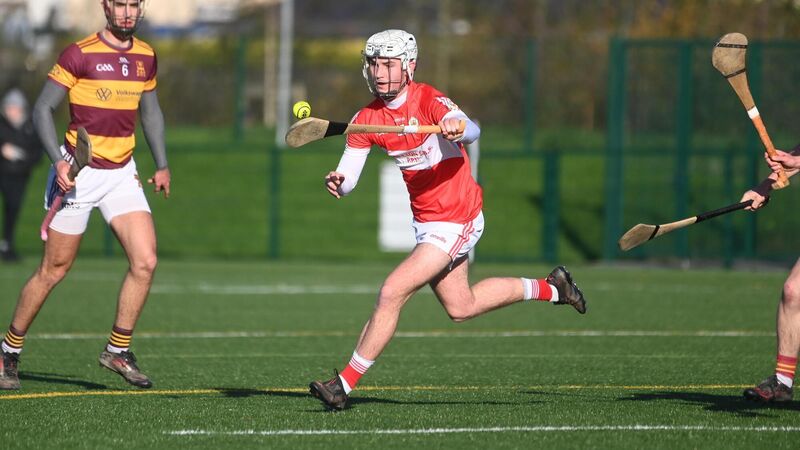
Jude Devoy in action on the forward line for Midleton CBS against De La Salle, Waterford in the Harty Cup Round 3 at Fethard. Picture: Larry Cummins
The demand for GAA artificial pitches is increasing because of the split season, but they will only ever be required for lower-level games and training sessions. That’s the opinion of FBD Semple Stadium groundsman Pádhraic Greene, who acknowledges their importance especially in the first and fourth quarters of the year, which are difficult times for grass pitches.
“With the split season, there is more demand on natural grass pitches and there is a trend of clubs going down the astro route and they are helping to take some of that load off the natural turf.




